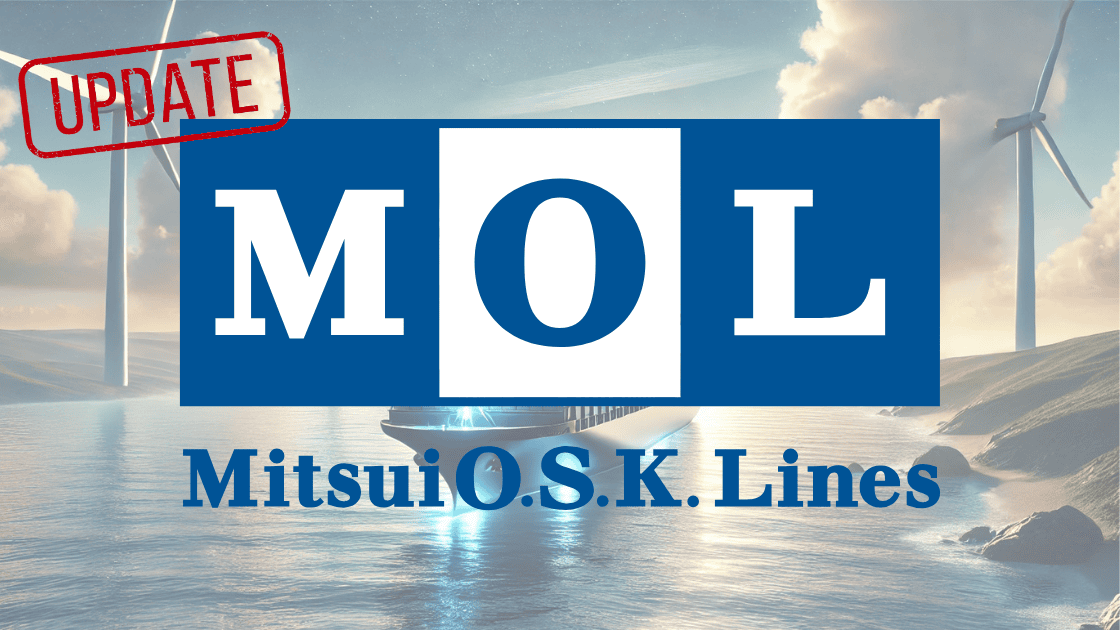MOL to Merge Three Subsidiaries to Create a Maritime Decarbonisation Hub

As the global shipping industry navigates a critical era of transformation toward sustainability, Mitsui O.S.K. Lines, Ltd. (MOL) has taken a significant step forward by announcing the merger of three of its key subsidiaries to establish a dedicated technical hub aimed at decarbonising maritime operations.
The Strategic Merger: A Comprehensive Overview
Set to take effect on April 1, 2025, the merger will bring together MOL Marine & Engineering Co., Ltd. (MOLMEC), MOL Ocean Expert Co., Ltd. (MOLOX), and MOL Ship Tech Inc. (MOLST) into a single, powerful entity that will spearhead MOL’s efforts in maritime decarbonisation. MOLMEC will serve as the surviving company in this merger, absorbing the expertise, resources, and innovation capabilities of the other two subsidiaries.
This consolidation is not merely a business decision but a strategic move by MOL to pool its technical resources and elevate its ability to meet global decarbonisation targets in the shipping industry. By uniting the specialised knowledge of these three subsidiaries, MOL is positioning itself as a leader in green maritime solutions.
Why Decarbonisation is Critical for Maritime Industry
The maritime industry, responsible for a substantial portion of global CO2 emissions, faces increasing pressure to reduce its environmental impact. Regulatory frameworks, such as the International Maritime Organisation’s (IMO) strategy to reduce greenhouse gas emissions, require shipping companies to adopt cleaner technologies and more sustainable operational practices.
MOL’s decision to merge these subsidiaries signals a proactive approach toward achieving these decarbonisation targets. The creation of a central hub dedicated to maritime decarbonisation will enable MOL to focus its efforts on reducing emissions, optimising operational efficiency, and integrating renewable energy into its core activities.
Harnessing Digital Technology for Sustainable Solutions
A standout feature of this newly formed company will be its deep reliance on digital technology to enhance various aspects of maritime operations. MOL plans to incorporate cutting-edge innovations in maritime consultancy, shipbuilding, crew support, operational maintenance, and human resource training, all with a central focus on sustainability.
For instance, digital solutions such as AI-based operational systems, smart maintenance tools, and real-time performance monitoring are expected to reduce fuel consumption, lower emissions, and improve overall efficiency. These advancements will not only help MOL optimise its fleet but also enable it to offer industry-wide services that promote decarbonisation.
Moreover, the new hub will prioritise MOL’s expanding interest in offshore wind power projects. With the global shift towards renewable energy, wind power is becoming a crucial element of maritime decarbonisation, and MOL’s involvement in this sector positions it as a key player in reducing reliance on fossil fuels. The hub’s contribution to offshore wind power production aligns perfectly with MOL’s long-term sustainability goals.
Enhancing Innovation: A Pathway to Carbon Neutrality
At the heart of this merger is the idea of creating an environment where innovation can flourish. By bringing together the technical expertise and resources of MOLMEC, MOLOX, and MOLST, the new hub aims to foster greater cross-disciplinary collaboration. This synergy is expected to result in groundbreaking maritime technologies that will address the sector's most pressing challenges, such as reducing fuel consumption, improving energy efficiency, and utilizing alternative fuels.
Through the merger, MOL is setting its sights on becoming carbon neutral, a goal that has become increasingly important in light of global initiatives such as the Paris Agreement and the United Nations Sustainable Development Goals (SDGs). The combined expertise of these companies will enhance MOL’s ability to deliver innovative solutions that cater to both internal needs and the broader shipping industry.
Smooth Transition Without Financial Transactions
Unlike many mergers that involve complex financial transactions, this consolidation will be a smooth transition, as all three companies involved are wholly-owned subsidiaries of MOL. As a result, no new shares will be issued, and no financial exchange will take place.
This structure allows MOL to focus entirely on operational integration without the distractions or complications of financial restructuring.
Operational Launch and Leadership
The new company will officially begin its operations on April 1, 2025, with its headquarters based in Minato-ku, Tokyo. Although the company name and leadership details have not yet been disclosed, MOL has announced that these will be made public by March 2025. This strategic timing will allow for a smooth transition and ensure that all necessary preparations are in place before the official launch.
A Legacy of Innovation and Sustainability
MOL Marine & Engineering, which has been at the forefront of maritime innovation since its establishment in 1988, will serve as the core of this new entity. Over the years, MOLMEC has built a strong reputation for providing maritime consultancy services, operating cable-laying vessels, and participating in offshore wind power projects. The merger with MOLOX and MOLST will only enhance these capabilities, allowing the new hub to make even greater contributions to the decarbonization of the maritime industry.
By leveraging its legacy of technical innovation, the newly formed company aims to play a leading role in shaping the future of maritime decarbonization. Through advanced maritime engineering solutions and a focus on sustainable practices, MOL is well-positioned to drive meaningful change in the global shipping industry.
Looking Ahead: MOL’s Vision for a Sustainable Future
This merger marks a significant milestone in MOL’s journey toward becoming a more sustainable and environmentally responsible company. As the global shipping industry continues to evolve, MOL’s proactive approach to decarbonization will not only benefit its own operations but also set a precedent for other maritime companies to follow.
The formation of this Maritime Decarbonization Hub underscores MOL’s commitment to embracing innovation, advancing environmental goals, and making meaningful contributions to the fight against climate change. With this merger, MOL is taking a bold step toward shaping a future where maritime operations are efficient, sustainable, and carbon neutral.
By merging its subsidiaries to form a powerful decarbonization hub, MOL is not only responding to the pressing environmental challenges facing the maritime industry but is also setting the course for long-term sustainability and innovation.